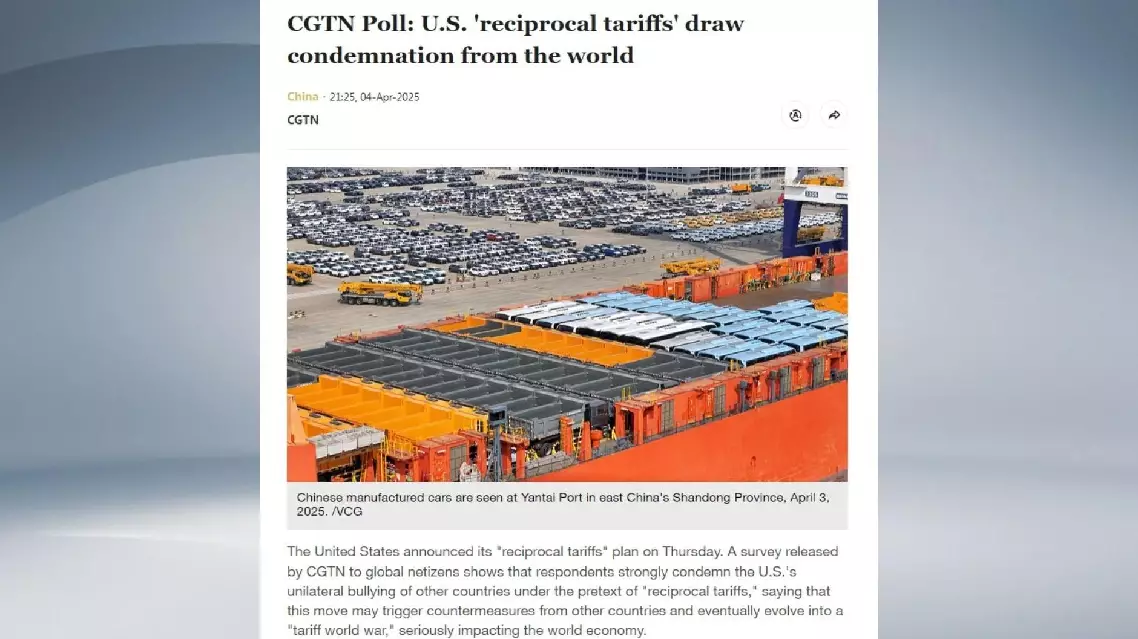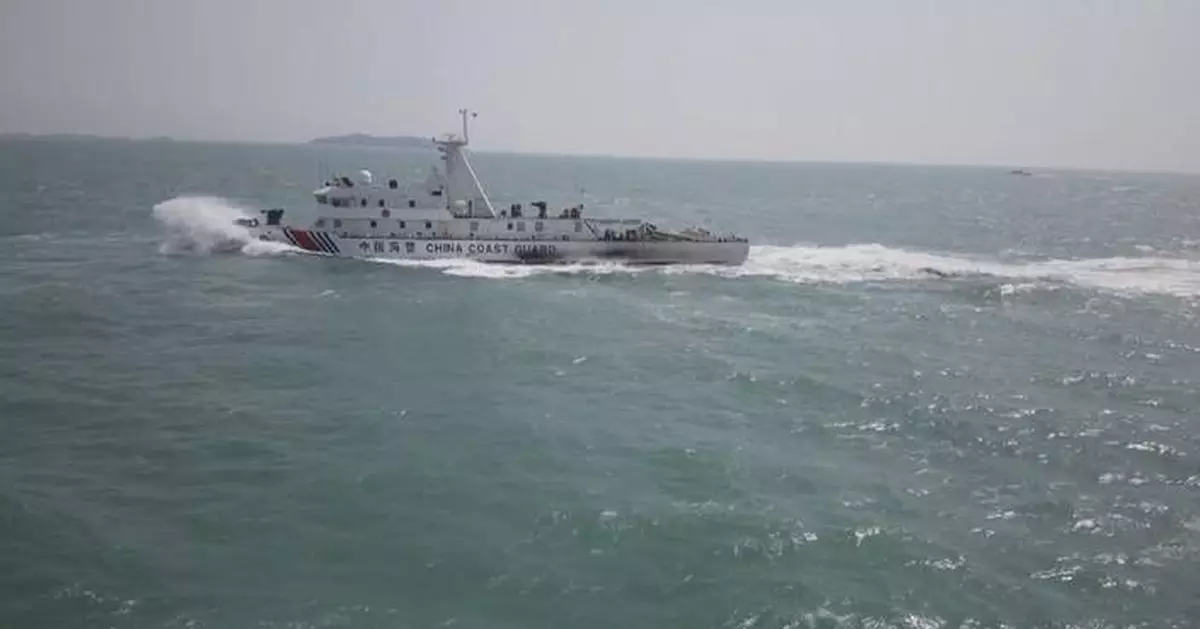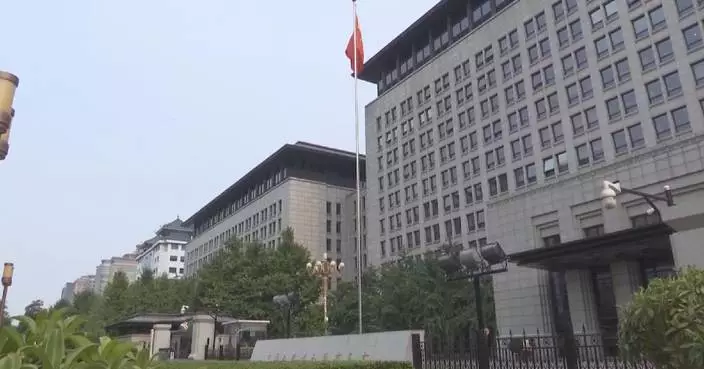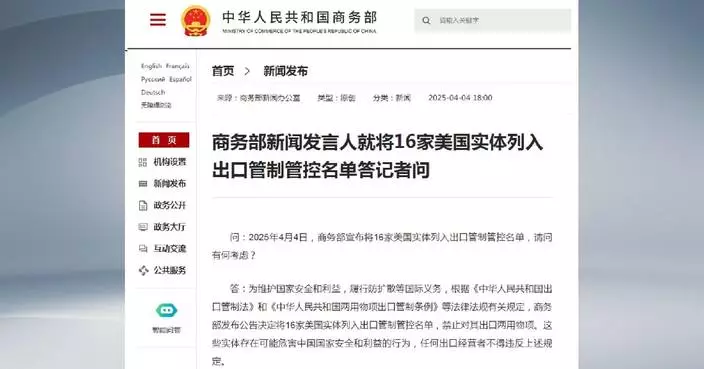The China Coast Guard (CCG) dispatched multiple formations of vessels to conduct law enforcement drills around the Taiwan island on Wednesday, with a focus on testing the ability to take control of the waters around the island and major ports.
During the drills, the CCG formations of vessels carried out exercises in radar detection, approaching for examination, warning and expulsion, route control, boarding for inspection and detention, and ship interception and seizure.
"The China Coast Guard is conducting control operations in this sea area in accordance with law, and passing ships, please change your course! If you need to enter or leave the Taiwan island, please identity yourself, inform us of your navigation plan, follow our guidance to enter the inspection area ahead, and cooperate in the Coast Guard inspection," said a CCG officer in a radio message in the exercises.
As part of the drills, the CCG's Fujian branch, based in east China's Fujian Province opposite the Taiwan island, conducted comprehensive law enforcement drills in the waters near the Dongyin and Wuqiu islands, warning and expelling Taiwan vessels that tried to disturb CCG vessels' normal law enforcement patrol and inspection.
"Taiwan PP10081: This is Vessel 14606 of the Fujian branch of China Coast Guard. We are conducting a law enforcement patrol and inspection. The waters of this sea area is under the jurisdiction of the People's Republic of China, and you have no right to interfere with our normal law enforcement operations. Taiwan is a province of China, so please be careful about your wording!" said an officer with southern Fujian dialect in a radio message.
The drills achieved results as expected, and the CCG said it will strengthen law enforcement patrol and inspection in the waters around the Taiwan island so as to ensure the normal navigation and operating order and thwart Taiwan separatist activities, according to Han Baoguo, a CCG officer with Vessel 2305.
"During the drills, we carried out legal management and control over the waters around the Taiwan island in accordance with the one-China principle, tested the ability to rapidly respond to and deal with emergencies, and achieved results as expected. Next, we will continue to strengthen law enforcement patrol and inspection in the relevant waters and intensify control efforts to safeguard legitimate rights and interests and life and property safety of our people, including Taiwan compatriots, effectively ensure the normal navigation and operating order in the waters around the Taiwan island, and resolutely thwart all Taiwan separatist activities," Han said.

CCG conducts drills around Taiwan to test ability to control relevant waters, major ports
A survey released by CGTN to global netizens shows that respondents strongly condemn the U.S.'s unilateral bullying of other countries under the pretext of "reciprocal tariffs," saying that this move may trigger countermeasures from other countries and eventually evolve into a "tariff world war," seriously impacting the world economy.
The U.S. claims that it has suffered losses in international trade and is raising tariffs on all trading partners under the pretext of "reciprocity," aiming to reduce the trade deficit. However, 81.03 percent of global respondents do not agree with this, believing that such measures will not achieve the expected results. During his first term in office, U.S. President Donald Trump imposed tariffs on major trading partners. According to statistics from the American Action Forum, a think tank, Trump's protectionist policies during the first term cost U.S. consumers about 57 billion U.S. dollars annually. According to the survey, 81.94 percent of respondents believe that "reciprocal tariffs" cannot solve U.S.'s own problems but will only harm the interests of U.S. consumers and drag down the U.S. economic growth.
The competitiveness of products from different countries varies. Each country can set appropriate tariffs based on its own products to achieve "mutual benefit" in the international market. The "tariff farce" of the U.S. side is a selective disregard for the balance of interests reached through multilateral trade negotiations. Some 82.8 percent of the respondents point out that in the context of unequal economic development and economic strength of different countries, the U.S. insistence on full and complete reciprocity in tariffs is extremely irrational.
The majority of the U.S. tariffs this time are targeted at developing countries. Regarding this, 82.96 percent of the respondents condemn the U.S. for conducting "indiscriminate attacks" on other countries on the issue of tariffs, believing that this is a deprivation of the development rights of other countries, especially developing countries. According to the survey, 84.43 percent of the respondents believe that the U.S.'s imposition of "reciprocal tariffs" will exacerbate the problem of trade unfairness with its trading partners and traditional allies, seriously damaging the country's credibility.
As a member of the World Trade Organization (WTO), the U.S. has unilaterally and subjectively introduced so-called "reciprocal tariffs" and insisted on implementing them. This is a typical act of unilateral bullying. In response, 79.47 percent of the respondents criticize the U.S. for seriously violating the rules of the WTO. In the survey, 79.58 percent of the respondents say that "reciprocal tariffs" have become a new tool for the U.S. to promote trade protectionism, which will further intensify international trade tensions and global economic fragmentation.
This survey was released on CGTN's English, Spanish, French, Arabic and Russian platforms. Within 24 hours, a total of 9,600 overseas netizens participated in the survey and expressed their views.

CGTN poll: US 'reciprocal tariffs' draw condemnation from world



















































